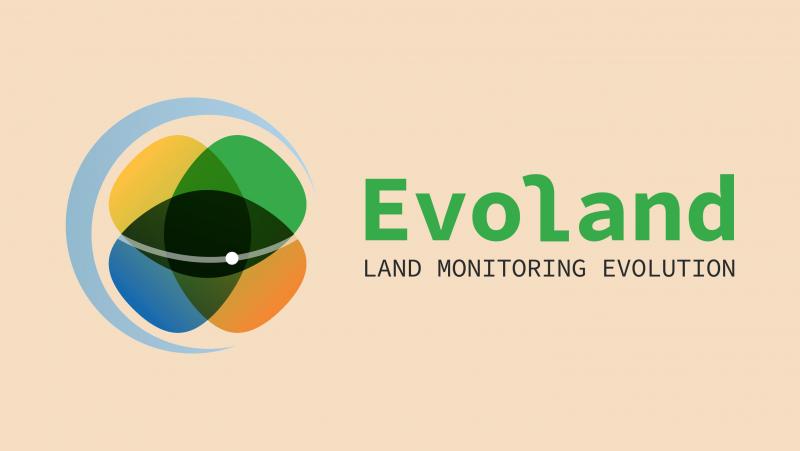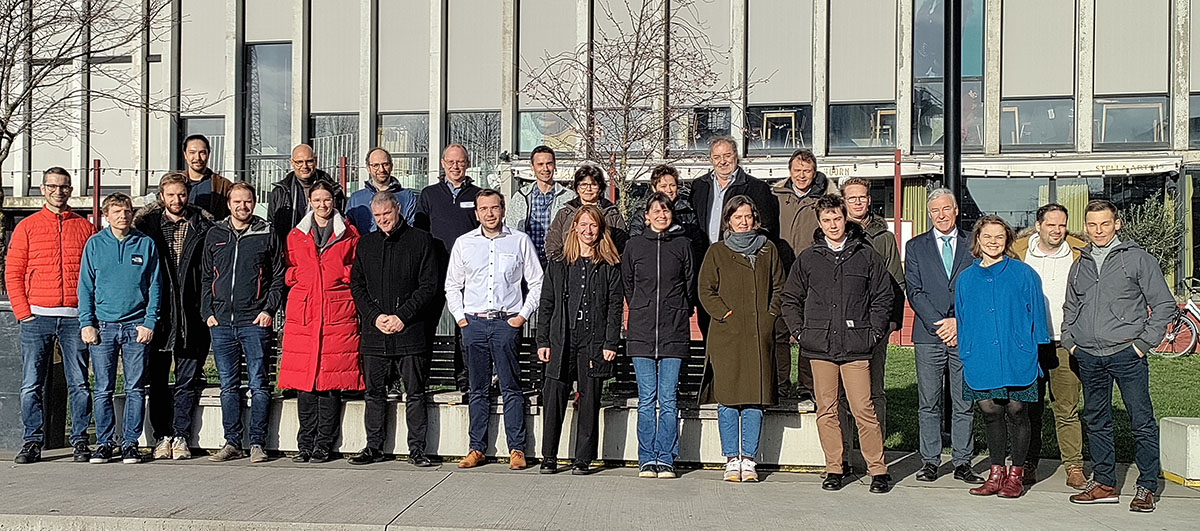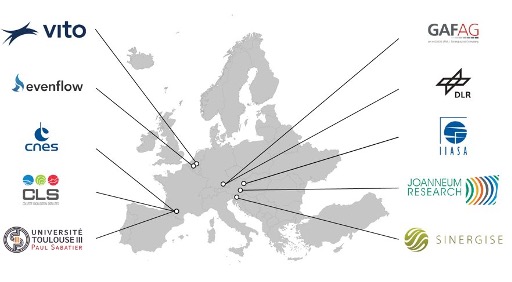Start of the EvoLand Project

Evolution of the Copernicus Land Service Portfolio - The new Horizon Europe project, EvoLand, was officially launched on 17–18 January 2023 in Leuven, Belgium. The project aims to integrate novel EO and in-situ data with advanced machine learning methods to develop innovative approaches, algorithms, and candidate Copernicus Land Monitoring Service (CLMS) prototypes for continuous monitoring of land surface status, dynamics, and biomass. Sinergise is one of ten partners from five EU countries in this three-year research and development project.
About EvoLand
The Copernicus Land Monitoring Service (CLMS) has been providing key products for monitoring the status of and changes in land cover and other environmental factors since 2011. With the new Copernicus 2.0 programme, technological advances, and increased user requirements, the CLMS now faces the challenge of becoming more efficient through further product integration, harmonisation, as well as automation, software modularity and the increased use of AI.
The EvoLand project aims to comprehensively improve the CLMS by developing new methods, algorithms, and prototypes for monitoring changes in land use, land cover and surface properties with high spatial and temporal resolution.

Image: EU Consortium of the “Evoland” project with EEA and JRC representatives at the kick-off meeting in Leuven, Belgium
How will the project achieve its objective?
EvoLand aims to develop eleven next-generation CLMS product candidates by integrating innovative approaches in data fusion, machine learning, continuous monitoring, and biomass mapping, as well as through the integration of novel EO and in-situ data. To develop those products, the project will use and further develop existing solutions such as the open-source openEO interface, which builds on the capabilities of Terrascope, Euro Data Cube and Sentinel Hub.
Along with this, the project will analyse the policy, data and infrastructure needs for the prototype services, interact with the Entrusted Entities (European Environment Agency [EEA] and Joint Research Centre [JRC]) and consult other key Copernicus Land stakeholders and users.
Evoland will support the Entrusted Entities through targeted research, provide tangible proof of the development potential of the CLMS in terms of improved information content, quality, and timeliness, and enable well-informed and fact-based decisions on the future of the CLMS.
During the demonstration phase of EvoLand, eleven CLMS candidate services will be prototypically implemented in larger regions, focusing on five key thematic areas:
- Forest: continuous forest monitoring, forest disturbance mapping, forest biomass mapping;
- Agriculture: cover crop type mapping, cropland/grassland gross primary production monitoring, small landscape features mapping;
- Water: improved water bodies mapping;
- Urban: automated land use mapping of urban dynamics, continuous imperviousness monitoring;
- General land cover: continuous mapping of land surface characteristics, on-demand land cover mapping.
They will be regularly assessed to ensure their usefulness, policy support potential, technical and innovative excellence, and operational readiness. As part of the project deliverables, a plan for transitioning the prototypes into operational CLMS services will also be proposed.
10 Partners, 5 European Countries
Led by VITO (Belgium), the project brings together a consortium of 10 partners from 5 European countries including CESBIO (France), CLS (France), CNES (France), DLR (Germany), Evenflow (Belgium), GAF AG (Germany), IIASA (Austria), Joanneum Research (Austria) and Sinergise (Slovenia).

 Project has received funding from European Union's Horizon Europe Research and Innovation Programme under the Grant Agreement 101082130.
Project has received funding from European Union's Horizon Europe Research and Innovation Programme under the Grant Agreement 101082130.

